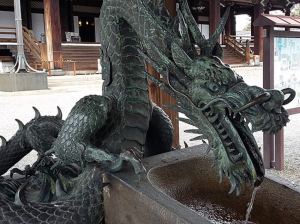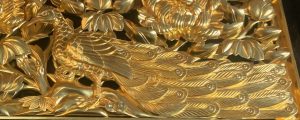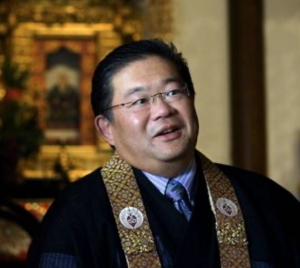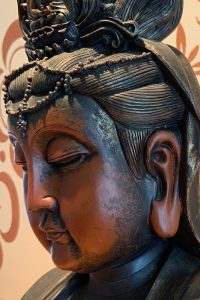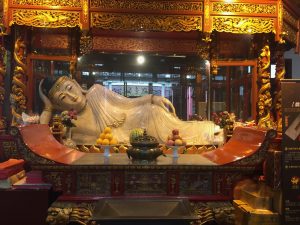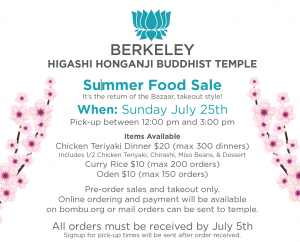
While the pandemic this year shut down its summer bazaar, the Berkeley Higashi Honganji Buddhist temple is planning to sell some of its popular bazaar foods as a fundraiser in July. Order by July 5 as supplies are limited. For more information and online ordering click here: Berkeley Higashi Honganji
To download flyer and order form, click here: Summer Food Sale Order Form 2021


